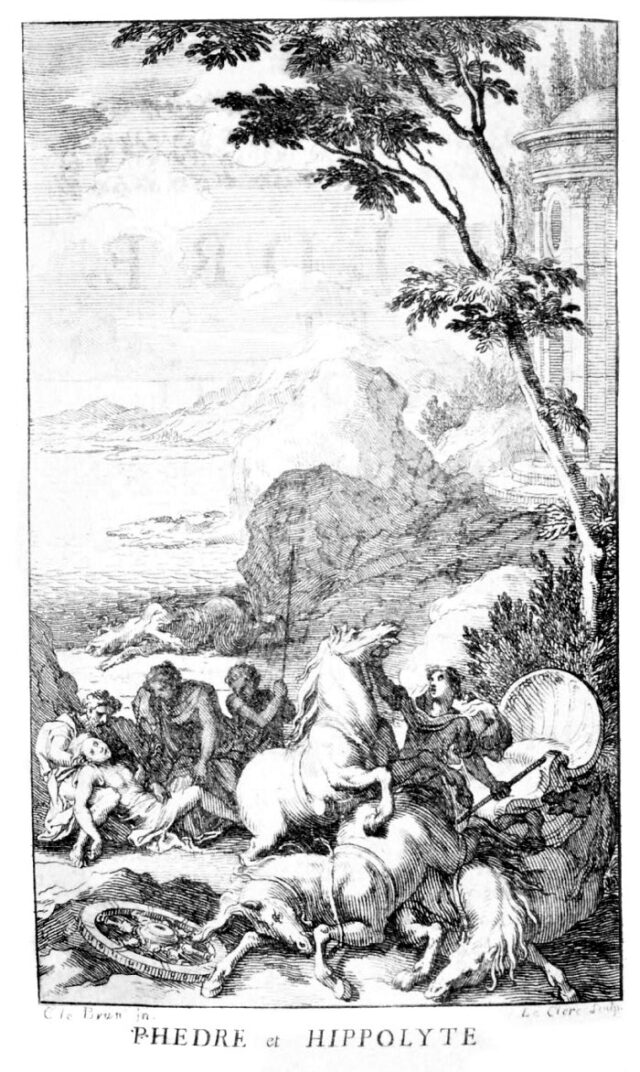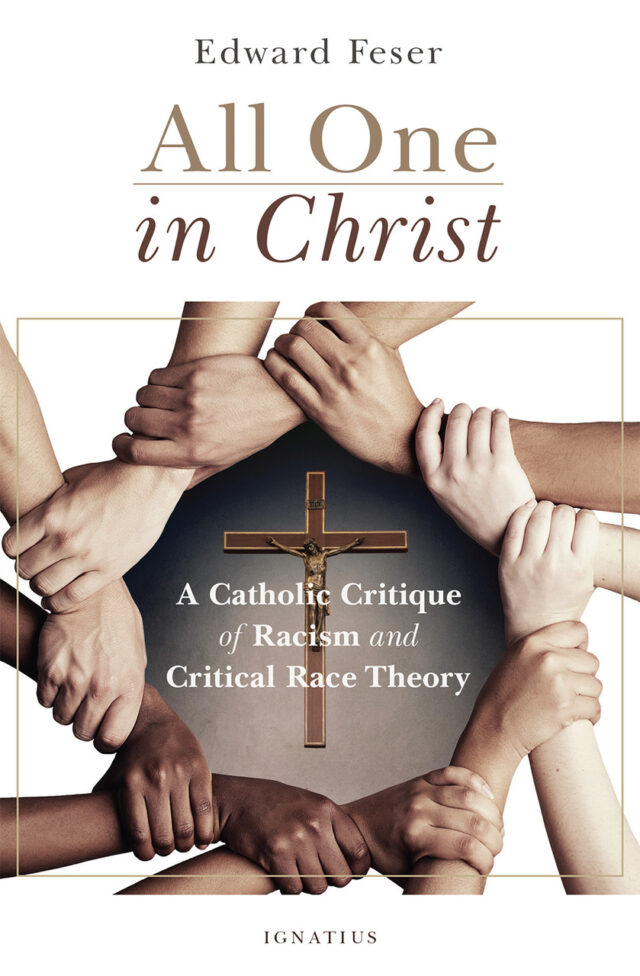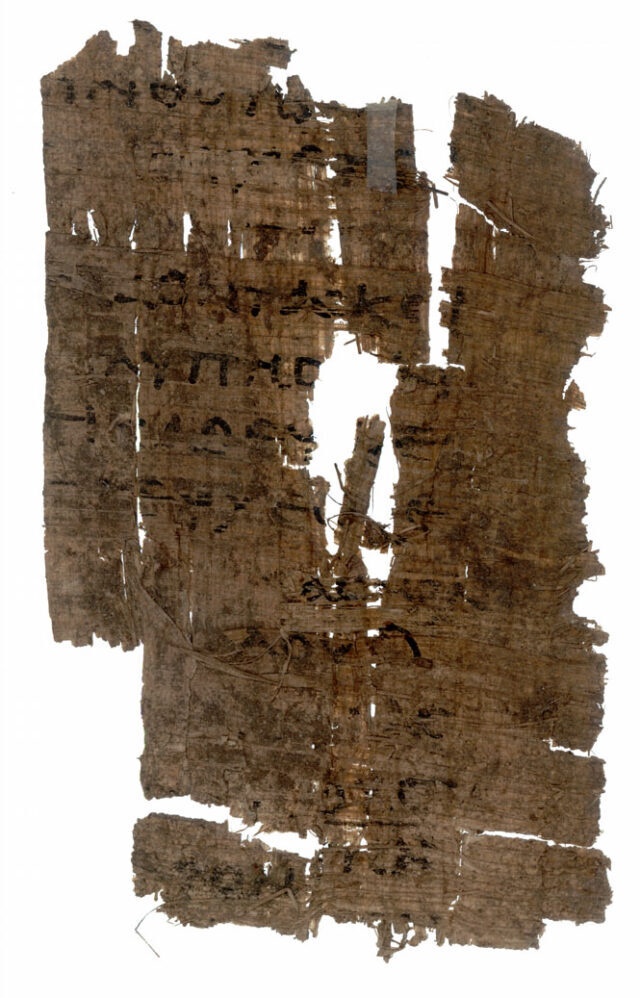Following my initial thoughts on Edward Feser’s All One in Christ (Ignatius 2002) (AOIC), I had a brief exchange on Twitter with Feser where, inter alia, he accused me of not understanding what a genetic fallacy is. This is due to the fact that I believe he commits this very fallacy in AOIC with respect to Critical Race Theory (CRT) when he repeatedly links it to postmodernism and Marxism. According to Feser, all he does in AOIC is “point out that there are certain features that CRT shares with Marxism and postmodernism, and that they’re as problematic in the one case as in the others.” Feser does this, but that is not all he does.
According to Feser, the genetic fallacy “involves rejecting a claim or an argument merely because of some disreputable historical or cultural association it has or is alleged to have” (77). This fallacy, also known as the fallacy of origins or the fallacy of virtue, has been defined elsewhere as holding that “if an argument or arguer has some particular origin, the argument must be right (or wrong). The idea is that things from that origin, or that social class, have virtue or lack virtue. (Being poor or being rich may be held out as being virtuous.) Therefore, the actual details of the argument can be overlooked, since correctness can be decided without any need to listen or think.” Whether one accepts Feser’s truncated definition or the more expansive version matters not. What matters, at least to Feser, is that he did not commit it. That is debatable to say the least.
Turning back through the pages of AOIC, Feser wastes no time in linking CRT to postmodernism and Marxism. He does it right away in the very chapter where he defines CRT (53-54):
Because CRT is energetically promoted in the name of “antiracism”, many suppose that it must be benign. That is as naïve as thinking that Marxism must be benign given that it presents itself as an ally of the working class. In fact, Marxism has only ever yielded an oppression worse than the kind it claims to eradicate. Similarly, in the name of remedying the evil of racism, CRT actually promotes a novel and insidious form of racism. Like Marxism, CRT is a grave perversion of the good cause it claims to represent, and it is utterly incompatible with Catholic social teaching.
Setting aside for a moment that Feser has not demonstrated that Marxism qua Marxism, as opposed to disparate applications of Marxism, “has only ever yielded an oppression worse than the kind it claims to eradicate,” why mention it at all? Even if Marxism invariably leads to greater oppression, Feser does not prove that CRT creates more racism; it rather “promotes a novel and insidious form of racism.” However, by weaving Marxism and CRT together, Feser intends the reader to believe that the problem with Marxism (oppression) is the same problem found in CRT without demonstrating as much. Perhaps Feser would say he is making a (casual?) comparison between Marxism and CRT. Such a claim could hold water but for the fact Feser returns to this matter repeatedly in AOIC. Here is what he says in Chapter 5 (71-72):
Readers familiar with Marxism and postmodernism will have noted the similarities CRT bears to them, the main difference being that CRT substitutes an obsession with race for the Marxist’s obsession with class and speaks of “whiteness” rather than the bourgeoisie as the sinister power lurking behind all legal and cultural institutions. This is no accident for Marxists and postmodernists such as Antonio Gramsci and Michel Foucault, respectively, were key influences on the development of CRT.
Indeed, it is no exaggeration to say that CRT is essentially a reformulation of some of the main themes of Marxism and postmodernism in racial terms. Where Marxism speaks of the conflict under capitalism between oppressive bourgeoise and the oppressed proletariat, CRT speaks of a struggle under “systematic racism” between an oppressive “whiteness” and an oppressed “people of color.” Where the postmodernist takes all norms and truth claims to be culturally relative and masks for the vested interests of power, CRT identifies this power in the case of European and American civilization with “white supremacy”, specifically.
Feser has more to say about CRT’s connections to postmodernism and Marxism, though never does he try to upset their claims. He takes it as given that postmodernism and Marxism are wrongheaded, pernicious, destructive, and so on and so forth. This is ironic given that just a few pages later, Feser chastises “CRT writers” for “the extremely poor quality of its [sic] argumentation and analysis.” He goes on to say, “Because these writers typically present ideas with a matter-of-fact and even aggressive confidence, unsophisticated readers may be unduly impressed” and that “[t]he self-assured style of this writing functions…as a rhetorical device by which its intellectual flimsiness might be masked” (74).
Though Feser is not committing the genetic fallacy here, he is partaking in another fallacy he notes in the book: special pleading, “which involves applying an arbitrary or unjustified double standard” (81). Here Feser blasts CRT for its “matter-of-fact and even aggressive confidence” in making arguments all the while arguing in a matter-of-fact and aggressively confident (if not dismissive) manner about postmodernism and Marxism—the corrupt soil from which the rotten tree of CRT allegedly sprung. Feser wants his audience to give him a pass where he fails to provide one to CRT.
Returning to the genetic fallacy, Feser may again claim he is only highlighting similarities rather than rejecting CRT (and encouraging others to reject it) because of its “disreputable historical or cultural association” it has with postmodernism and Marxism. Given all of the aspersions, well-grounded or not, that Feser casts upon postmodernism and Marxism, that defense is hard to take seriously. By AOIC’s final chapter, Feser does nothing to mask his belief that CRT should join postmodernism and Marxism as ideologies condemned by the Catholic Church (127):
As noted already, Critical Race Theory essentially reformulates, in racial terms, some of the key themes of Marxism and postmodernism. Now, the Church has consistently and strenuously condemned the key ideas of Marxism and all other forms of socialism and communism, along with the relativist and other themes that are characteristic of postmodernism. It follows that CRT, which is a mere variation of these malign ideas, is no more compatible with teaching of the Church than Marxism and postmodernism are.
In other words, the apparent condemnation of CRT’s intellectual forebears is a condemnation of CRT. Feser goes on to spill more ink about the incompatibility of Marxism with Catholic social teaching while returning to the theme of genetically linking CRT and Marxism (e.g., 131, 137, & 139). And while I have never stated that Feser fails to make arguments against CRT other than genetic ones, his reliance on tarring CRT with Marxism and feathering it with postmodernism undermines AOIC’s strength. CRT is not vanquished fairly in the ring; it is kneecapped by association before the bout gets fully underway. Such a move only has the dubious benefit of appeasing an audience already committed to opposing CRT.







